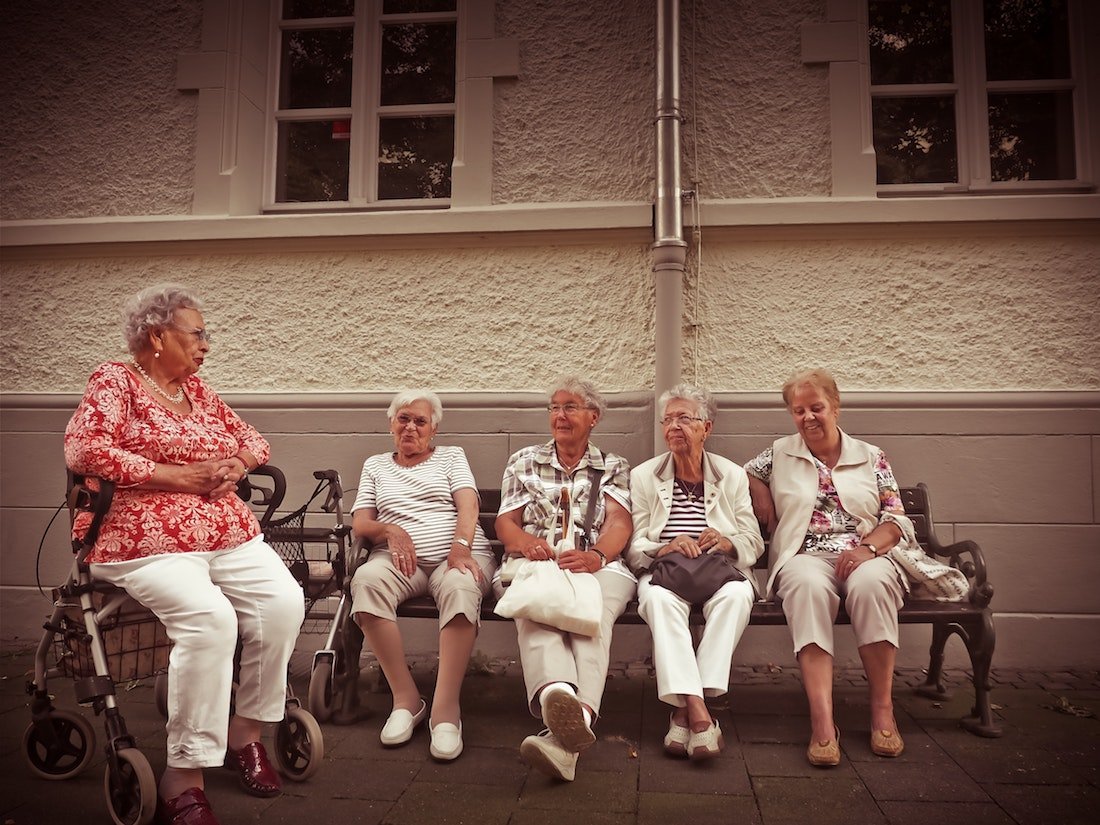When caring for someone with dementia, it can be challenging to get the right balance between being helpful and supportive and allowing your loved one to retain their independence for as long as possible.
According to Dementia Carers Count, there are currently 700,000 people in the UK (15.7 million in the US) who care for someone with dementia, with 40% of these carers looking after their loved one 24 hours a day, 7 days a week.
Unfortunately, there is no manual for carers and most people who look after someone with dementia are simply trying to do their best on any given day.
However, trying to ensure that your loved one’s overall wellbeing is looked after while at the same time trying to help them maintain their dignity, confidence and self-esteem can be difficult.
Staying Independent with Dementia
That being said, with the right support, advice and guidance, carers can ensure that the person they look after is both safe and able to remain independent.
If you are personally struggling to help your loved one with dementia to retain their independence, the below practical steps should ensure that you are able to offer the right support without being overpowering.
Dementia medication made simple

One of the most prolific issues amongst families who care for relatives with dementia is medication adherence.
In fact, recent studies have shown that people living with dementia only manage to take the correct dosage of their prescribed pills 11% of the time.
Furthermore, due to the complexity of dementia medication and the fact that many people living with dementia also suffer from a wide range of other medical conditions and behavioral issues, it is crucial that carers and patients alike are able to effectively manage their medication.
Fortunately, there is a simple solution to this problem, yet many families who are affected by dementia are unaware of it.
The dementia aid in question is the automated pill dispenser.
This product is specifically designed to assist people with Alzheimer’s and dementia, as well as those who are visually or mentally impaired, by reminding them to take their medication in a highly specialized and effective way.
With the ability to set up to 6 daily audio and visual alarms and a fully automatic lock, this handy device is perfect for helping dementia patients to feel in control of their medication and retain their sense of independence.
Furthermore, it gives carers peace of mind that their loved ones are not forgetting to take their dementia medication, providing one less element of dementia care for them to worry about.
You can also find several other medication management products for people with dementia including:
- Vibrating alarms watches
- Timers
- Pill boxes of various sizes and capacities
- Pill grinders
The power of physical activity
Everyone knows the importance of regular exercise for maintaining good physical health, yet not many are aware of the link between physical activity and brain health.
As a part of Age UK’s “Staying Sharp Series”, The Global Council on Brain Health (GCBH) examined the evidence around achieving a brain-healthy lifestyle including the beneficial effects of regular physical activity.

The results were clear. A physically active lifestyle, as in one that incorporates movement into daily activities, lowers the risk of decline in thinking skills as you age.
Furthermore, “purposeful” exercise, meaning exercise that involves moderate to vigorous exertion, results in beneficial changes in both brain structure and brain function.
What does this mean for people with dementia?
Fortunately, for those that have dementia and are already experiencing a decline in their cognitive skills, exercise can be beneficial too, helping to combat changes in the brain that are associated with this disease.
In terms of specific exercises, there are several activities that are suitable for people in the early or middle stages of dementia including:
Remember that activities such as these can not only help dementia patients to stay physically and mentally independent for longer, but they also encourage social interaction which is vital for their overall confidence and self-esteem.
Plus, it can help to lower their stress levels, and yours as a carer.
Making home modifications

In terms of practical steps that you can take to help your loved one with dementia retain their independence, making modifications to their home is arguably one of the most crucial.
The way in which their home is designed and laid out can have a massive impact on how someone with dementia is able to carry out daily tasks such as cooking, cleaning and even just getting around the home safely and with minimal effort.
Fortunately, as a carer or family member, there are several modifications that you can make to ensure your loved one is both comfortable and safe in their own home.
Improve lighting
If you are concerned about the risk of falls or confusion, it can be a good idea to evaluate the lighting in the home.
You want to avoid too many shadows and reflections and reduce glare where possible as all of these can cause disorientation in someone with dementia.
Try and embrace natural light where possible by leaving the curtains open all day, avoiding blinds and cutting back any overbearing trees or hedges in the garden that are blocking the windows.
In terms of technology, you could invest in some automatic light sensors that will instantly turn on the lights when someone walks past them.
Reduce noise
Excessive noise can be distressing for people with dementia, especially if they rely on a hearing aid. Therefore, you should try and eliminate unwanted sounds and background noise where possible.
For example, turn off the television or radio when no-one is watching it, put rugs down if you have wood or laminate flooring and pull the curtains closed in the evenings.
Use labeling
If you find your loved one often gets confused when navigating their way around their home, displaying clear labels or signs can be extremely effective.
When creating signs you should ensure that they are understandable, are accompanied by a corresponding image and that they contrast in terms of color with the background that they are placed on.
Make the flooring safe
Trips and falls are a real worry for carers with people living with dementia three times more likely to suffer a hip fracture when they fall.
Therefore, it is crucial that you ensure their flooring is as safe as possible.
Ways in which you can make flooring more secure include:
- Avoiding rugs or mats that pose a tripping hazard
- Avoiding shiny or reflective flooring
- Choosing a color that contrasts with the walls
When carrying out any of the above modifications it is important to be mindful of your loved one, as people with dementia can become distressed by changes to their routine or home environment.
Try not to make too many changes at once and involve your relative in the process through active communication and addressing any of their worries or concerns.
If you would like more information on how to make your home dementia-friendly, the Alzheimer’s Society has created a handy booklet full of top tips that you can download online or request a copy to be sent to you in the post.
Take advantage of technology
In recent years dementia-related technology has come a long way with a plethora of helpful dementia aids that can help your loved one retain their independence.
Known as “assistive technology”, the below innovations will not only promote self-reliance in someone with dementia but will also help to keep them safe in their own home.
Dementia clocks
People with dementia can become easily confused concerning the time of day and often cannot determine between day and night.
Dementia clocks are a great way to help your loved one with their routine, providing a clear and simple way for them to distinguish the time.
There are many different types of dementia clocks available with some that show the day, date and time, some that depict day and night and others that simply show the day of the week for those in the later stages of dementia.
Hydration cups
Dehydration is a common problem in elderly people in general but it is even more of a concern in people with dementia.
There are several reasons why someone with dementia can become dehydrated including:
- They forget to drink fluids or forget where they have left their drink
- An inability or difficulty swallowing
- An inability to communicate that they are thirsty
- Medications that cause frequent urination
- Limited mobility

Elderly people are recommended to drink 2-3 pints of water a day, which is equivalent to 6 cups of tea, yet people with dementia regularly do not drink this much leading to common signs of dehydration including nausea, headaches and persistent fatigue.
Thankfully, help is at hand in the form of hydration cups such as the Droplet.
Designed in the same shape as a mug or cup to allow users to enjoy a sense of normality, these cups work by alerting the owner when they have not drunk for a while using both subtle flashing lights and recorded audio messages.
Communication aids
One of the key factors in helping someone with dementia to remain independent is ensuring that they do not become cut off from the outside world.
As the disease progresses, many dementia patients will prefer the comfort and familiarity of their own home, but that doesn’t mean that they can’t still stay connected with their family and friends.
Adapted telephones are a dementia aid that provides a simple way for people to stay in contact with their loved ones, with the ability to pre-program their most frequently dialed numbers and larger buttons for ease of use.
You may also want to show your loved one how to use Skype and FaceTime so that they can video call any family members or friends who live too far away to visit frequently.
Other technological innovations for dementia patients you may want to look into include:
- Location tracking devices
- Personal alarms
- Automated temperature, smoke and carbon monoxide detectors
- Memo minders
The bottom line
Finding ways to help your loved one to retain their independence, confidence and self-esteem is vital both for their overall wellbeing and your own.
Nobody likes to admit it but being a carer to someone with dementia is hard work.
Of course, it can also be massively rewarding and helping your partner, parent or friend when they need it most is arguably one of the most meaningful things you ever do.
That being said, there is no shame in admitting that you need help.
Whether that involves utilizing the latest technology to help your loved one manage their own condition or using an automated product to take the pressure off of you, even if just concerning one daily task.
Be sure to keep the lines of communication open between yourself and the person you are caring for and focus on their abilities as their condition progresses.
Encourage them to participate as much as possible but don’t be afraid to step in when necessary.
Whether you live with someone with dementia such as a partner or spouse, or you help care for a parent who lives alone, helping them to keep their independence for as long as possible will result in them leading a happier, healthier and more stress-free life.







